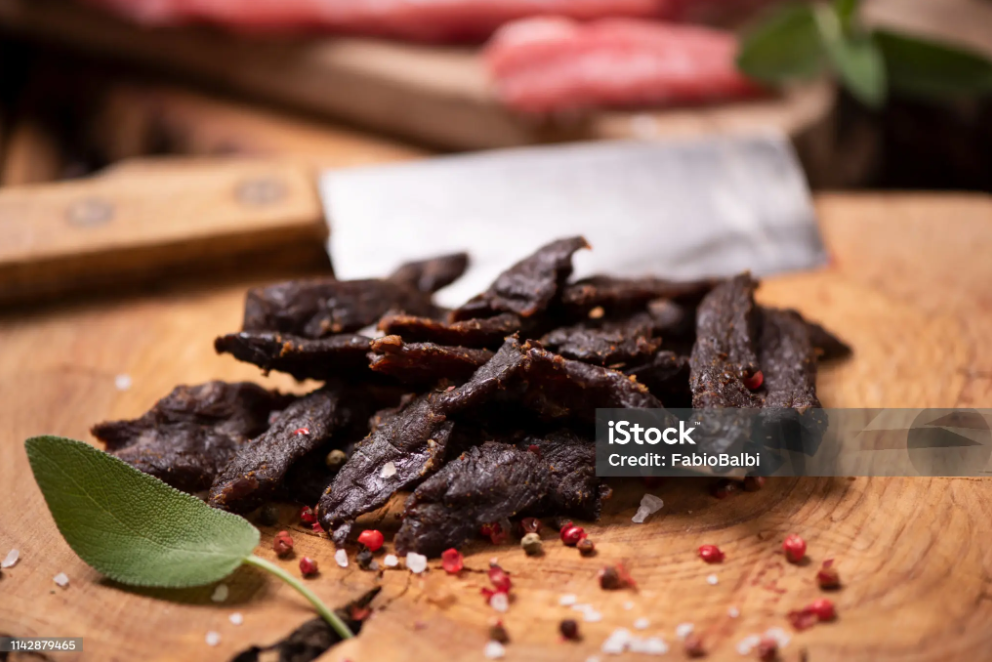
Australian Jerky Market
Australian Jerky Market (2024–25)
The Australian jerky and dried-meat snack category remains modest in size but is growing. Domestic retail sales of meat snacks (beef jerky, biltong, exotic game jerky, etc.) are estimated on the order of A$40–80 million. For context, an MLA-funded study put Australia’s total jerky market at about A$40–56 million (only ~2–3% of all snack foods), while a 2024 report valued the broader “meat snacks” segment at A$77.6 million. Globally, jerky is a multi‐billion‑dollar category (≈US$5–7.3 billion), so Australia’s domestic consumption is still small. There is no comprehensive official volume data; livestock sector statistics suggest most jerky is made from lean beef cuts (with some from pork or game) when export demand allows. Overall, analysts note protein‑rich snacks are a fast‑growing trend, but beef jerky accounts for only about 2% of Australian snack sales, implying significant upside.
Regional Consumption and Trends by State
Demand is concentrated in Australia’s populous eastern states. New South Wales (28%), Victoria (24%) and Queensland (22%) generate the lion’s share of red-meat turnover, and Victoria alone held ~25.6% of the nation’s meat‐snacks market in 2024. By contrast, Western Australia and South Australia each contribute ~10%, with Tasmania, the NT and ACT only a few percent. In practice, beef/biltong jerky is widely available in major cities (often reflecting South African and health‑food trends), while some exotic game jerky (kangaroo, emu, camel) is regionally popular. For example, Western Australian outlets see brisk sales of kangaroo jerky among outback workers, and Queenslanders are avid customers of locally made kangaroo jerky. However, precise per‑state volumes are unpublished; industry observers infer that NSW/Vic/Qld have the largest domestic jerky markets simply due to their population and retail activity.
Pricing Trends (Beef, Biltong, Game)
Retail prices vary widely by type and brand. Mass-market beef jerky (often in multiplex packs or processed at scale) can be relatively inexpensive – on the order of A$50–80 per kg (e.g. a 180 g supermarket pouch for ~$10). Artisanal or premium beef jerky typically ranges A$100–150+ per kg (e.g. 40 g packs at $5–6, $125–$158/kg). Exotic game jerky (wild kangaroo, emu, camel) often costs more, roughly A$160–200/kg. Air‑dried biltong commands the highest prices: for instance, Barbell Foods’ Wagyu beef biltong is A$115 for 200 g ($575/kg). A kangaroo biltong example (a 160 g pack) sold at a Melbourne market for $22 ($137.50/kg). In summary, basic beef jerky can be <$60/kg, mid-range local brands $100–150/kg, kangaroo jerky $160–200/kg, and specialty biltong up to $500+/kg.
